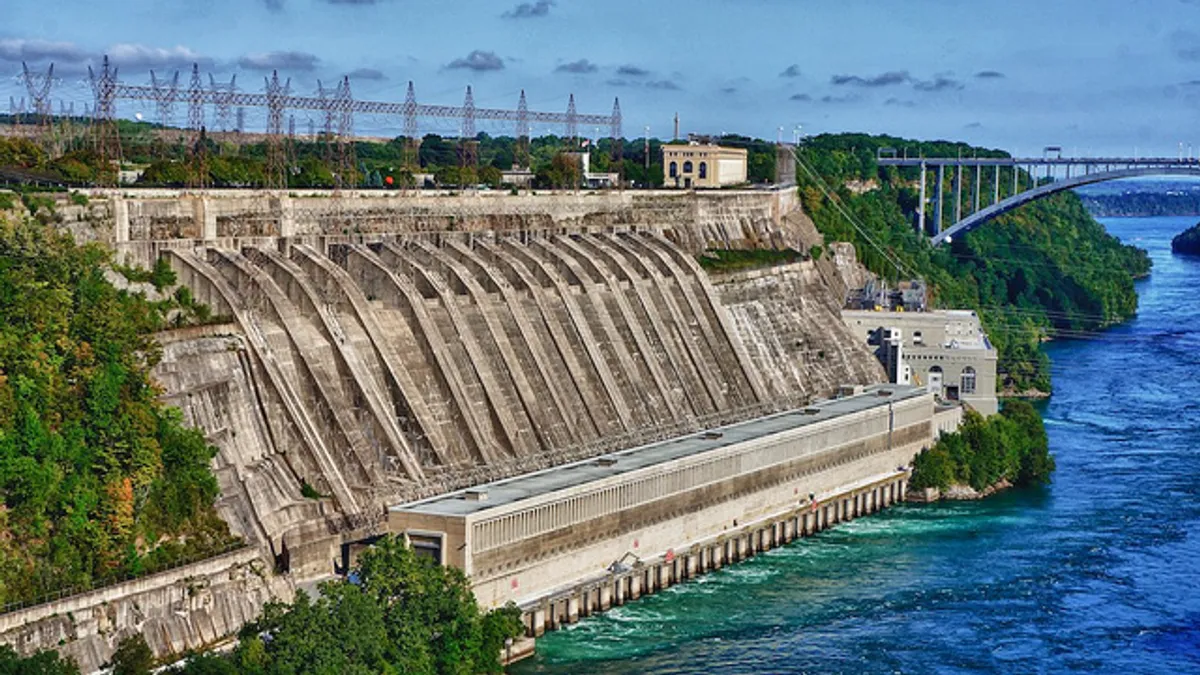Dive Brief:
- The Environmental Protection Agency (EPA) told the U.S. Army Corps of Engineers that the environmental permit application for Central Maine Power's (CMP) proposed 145-mile transmission line is incomplete.
- CMP submitted an application with the Army Corps in March for its project, New England Clean Energy Connect (NECEC), designed to deliver 1.2 GW of hydropower from Canada across Western Maine to Massachusetts. Beth Alafat, EPA's acting chief of wetlands protection, wrote in an April 25 letter that the application was incomplete, preventing stakeholders from understanding the full environmental impacts of the NECEC.
- The Army Corps will weigh the input as part of its request for comments on the application, although Alafat requested an extension on the April 25 comment deadline to allow stakeholders to react to updated information from CMP. Alafat also asked that CMP consolidate its information for NECEC to increase accessibility and detail alternative locations for the transmission corridor due to the current proposal's impact on aquatic ecosystems.
Dive Insight:
Northeast states with large urban areas, such as Massachusetts, are struggling to site enough renewable resources to meet clean energy goals, making the transmission project important for meeting green targets.
The NECEC requires state environmental and federal approvals after receiving utility regulator approvals in Maine last month. Maine's Department of Environmental Protection and Land Use Planning Commission are expected to complete their deliberations on permits before the Army Corps issues a decision, according to the Bangor Daily News.
The owner of the hydropower, Hydro-Quebec, had initially attempted to deliver the electricity through a transmission line proposed by Eversource Energy, crossing through New Hampshire. Hydro-Quebec partnered with CMP, a subsidiary of Avangrid, after the Eversource project was rejected by state regulators last year.
CMP and supporters of the NECEC view the nearly-$1 billion project as an opportunity to boost Maine's rural economy, along with reducing overall reliance on fossil fuels in the region.
"The NECEC project remains on track," Thorn Dickinson, business development vice president of Avangrid, said in a statement.
The EPA input is "a normal part of the process" and all agencies are expected to determine the NECEC will be good for the state as it lowers electric rates and carbon emissions, according to Dickinson.
The EPA echoed concerns of environmental advocates who argued the transmission corridor would harm natural sites and resources. EPA alleged that the permit application was inconsistent with CMP's plans for the project, which had changed without updating the Army Corps application.
"The [NECEC] project would impact hundreds of acres of wetlands, including 242 vernal pools, mostly through secondary impacts," Alafat wrote.
The EPA also recommended looking for alternative transmission routes along existing roadways, railways or previously cleared linear corridors, like logging roads, to reduce impacting undisturbed areas. "Alternatives to the proposed action that would cause less impact to the aquatic ecosystem have not been fully explored," Alafat wrote.
Avangrid did not respond to comments about the EPA's criticism.















